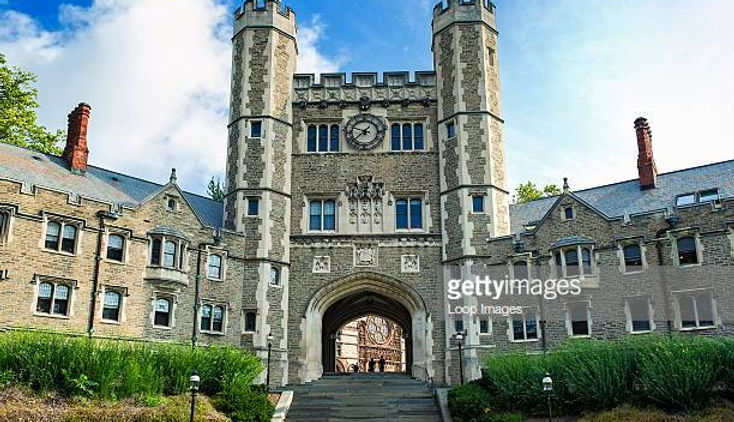
WITHERSPOON, THE PRINCETON UNIVERSITY PRESIDENT
True education, as per common sense principles, was an education that taught its students how to take a principled stand for maximum good. As that was what America needed, Witherspoon instilled the spirit of patriotism and public service in his students. Not surprisingly, he became the only educationist who taught a president, vice president, ten cabinet officers, twenty-one senators, thirty-nine congressmen, and two governors but also thirteen college presidents and three Supreme Court justices. While this is a testimony to the commitment of a dedicated professor whose philosophy of common sense realism encouraged him to prepare his students to contribute politically to a new nation, it prompted British officers to complain that Princeton University was a “seminary of sedition…” and “Dr. Witherspoon …the political firebrand, who perhaps has no less a share in the revolution than Washington himself. He poisons the minds of his young students, and through them the continent.” Though Witherspoon never encouraged violence against the king, his commencement addresses clearly evidenced his growing nationalism. In 1768, his speech was about why America should have the right to free trade. In 1770, commencement speakers and the senior class stood dressed in American manufactured clothes to make their stand clear. In 1772, he pointed out that defending one’s freedom against a monarch who unlawfully denies was a natural right, prompting newspaper commentary that “the Spirit of Liberty breathed high and strong in all its Members of Princeton College.” By coming down on the side of national interest instead of opting to be apolitical, Witherspoon not only became the most influential educator in the early life of the republic but a mover and shaker of the revolution himself.
Witherspoon represented New Jersey and signed the declaration of independence as her representative, this becoming the only pastor and educationist to sign the document. As a pastor, principal and politician, he fought relentlessly for the Patriot cause, and was instrumental in pushing colonial America to the Patriot side of the conflict. When a conservative used Witherspoon’s entry to say that the Congress needed more time before signing the Declaration of Independence, he responded, “It is not only ripe for the measure but in danger of becoming rotten for the want of it.”

HOW WITHERSPOON RESOLVED STATE VS. FEDERAL CONFLICT
Witherspoon played a pivotal role in winning the case for freedom and in the drafting of the Articles of Confederation. While arguing for the cause of the union and a republic, Witherspoon pointed out that “if when the danger is imminent …, we find it impossible to agree upon the terms of this confederacy, what madness is it to suppose that …it will be done in an after season.” He rationalized that a confederation could keep war at a distance since wars happen generally between “monarchs of single states.”As he envisioned it, having taken a “greater step from the former disunited and hostile situation of kingdoms and states to their present state,” it would not be very difficult for them to “move from their present condition to a state of more perfect and lasting union.”
When the revolutionary war broke out, Witherspoon became America’s spokesman. Although he had lost a son in the battle, Witherspoon hailed the American Revolution as “a purifying fire, the first test of union, and the forging of a new community of states.” Internationally, it established him as “a chief promoter of American revolt.” “The unhappy commotions in our American colonies” are due to “clerical influence: and none…had a greater share…than Dr. Witherspoon.” In the British commissioner’s words, “we have 1200 miles of territory occupied by 300,000 people of which there are about 150,000 with Johnny Witherspoon at their head….” Not surprisingly, Witherspoon’s effigy was burned, Nassau Hall and his house ransacked, and the library vandalized during the revolutionary battle. Someone even bayoneted a priest in Princeton, thinking it was Witherspoon. In fact, extensive historical data that documented Witherspoon’s role in the revolution was lost in the fire